Related Research Articles
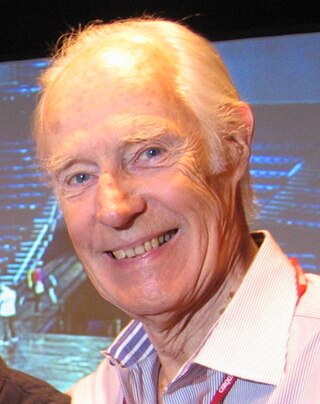
Sir George Henry Martin was an English record producer, arranger, composer, conductor, and musician. He was commonly referred to as the "fifth Beatle" because of his extensive involvement in each of the Beatles' original albums. Martin's formal musical expertise and interest in novel recording practices facilitated the group's rudimentary musical education and desire for new musical sounds to record. Most of their orchestral and string arrangements were written by Martin, and he played piano or keyboards on a number of their records. Their collaborations resulted in popular, highly acclaimed records with innovative sounds, such as the 1967 album Sgt. Pepper's Lonely Hearts Club Band—the first rock album to win a Grammy Award for Album of the Year.

Matt Monro was an English singer. Known as "The Man with the Golden Voice", he performed internationally during his 30-year career. AllMusic has described Monro as "one of the most underrated pop vocalists of the '60s", who "possessed the easiest, most perfect baritone in the business". Frank Sinatra said of Monro after his death: “If I had to choose three of the finest male vocalists in the singing business, Matt would be one of them. His pitch was right on the nose; his word enunciations letter perfect; his understanding of a song thorough.”
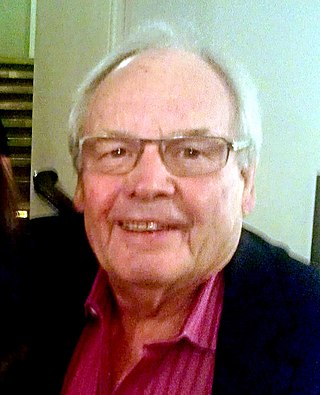
Anthony Peter Hatch is an English composer for musical theatre and television. He is also a songwriter, pianist, arranger and producer.
Norman Newell was an English record producer and lyricist, who was mainly active in the 1950s and 1960s. He was also the co-writer of many notable songs. As an A&R manager for EMI, he worked with musicians such as Shirley Bassey, Dalida, Claude François, Vera Lynn, Russ Conway, Bette Midler, Judy Garland, Petula Clark, Jake Thackray, Malcolm Roberts, Bobby Crush and Peter and Gordon.
John Valmore Pearson was a British composer, orchestra leader and pianist. He led the Top of the Pops orchestra for sixteen years, wrote a catalogue of library music, and had many of his pieces used as the theme music to television series.
Kenny Clayton was a British record producer, arranger, conductor and jazz pianist.
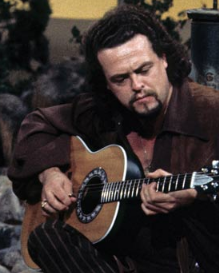
James George Tomkins, known professionally as Big Jim Sullivan, was an English guitarist.
John Russell Parnell was an English musician and musical director.
Valentine Charles Parnell was a British television managing director and presenter, actor and theatrical impresario. A former staple of stage production, his career in television started with the launch of the ITV network in 1955.
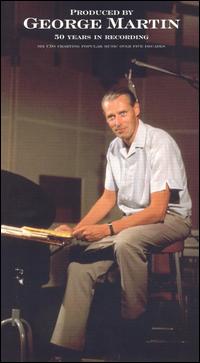
Produced by George Martin is a 2001 various artists compilation box set of tracks produced by Sir George Martin. It is also the title of a documentary film on George Martin co-produced by the BBC's Arena team and released in 2012 by Eagle Rock Entertainment on DVD and Blu-ray.
Ronald Thomas Verrell was an English jazz drummer. He played in two of the United Kingdom's "most famous" big bands, the Ted Heath Orchestra and the Syd Lawrence Orchestra. Verrell also worked extensively in television, including as a drummer in Jack Parnell's ATV Orchestra and Sunday Night at the London Palladium. He also provided the drumming for The Muppet Show's Animal, and was a "Skinnerette" on The Frank Skinner Show.
John Stanley Livingstone Harris was a Scottish composer, producer, arranger, conductor, and musical director. He lived in the United States from 1972 until his death.

Kenny Baker was an English jazz trumpet, cornet and flugelhorn player, and a composer.
Victor Lewis MBE was a British jazz guitarist and bandleader. He also enjoyed success as an artists' agent and manager.
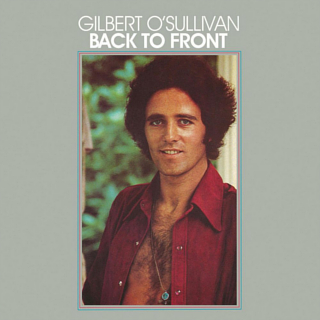
Back to Front is the second studio album by Irish singer-songwriter Gilbert O'Sullivan, released in October 1972 by MAM Records. The album follows the success of his 1971 debut album Himself and singles such as "Alone Again (Naturally)". Coinciding with the album, O'Sullivan abandoned his distinctive dress sense, which included a short cap and trousers, and instead presented himself as a more masculine, hairy-chested singer with a perm, wearing sweaters with the letter "G" emblazoned on them, which helped establish him as a sex symbol. O'Sullivan wrote the album's songs at home during night-time writing sessions, and recorded the album with his manager and producer Gordon Mills in London.
Laurence Holloway is an English pianist, musical director and composer from Oldham, Lancashire, England. In the 1970s he was the Musical Director for the singer Englebert Humperdinck, and for the television talk show Parkinson. In 2004 he was the original MD for the BBC's Strictly Come Dancing.
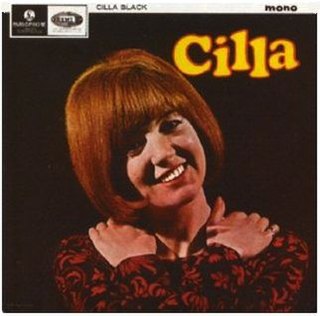
Cilla is the debut studio album by British singer Cilla Black, released on 25 January 1965 by Parlophone Records. The album was a commercial success, reaching No. 5 on the UK Albums Chart. The tracks were directed by John Scott, Johnnie Spence and George Martin. Sounds Incorporated accompany her on "Love Letters".

Len Beadle was an English music publisher, songwriter, music producer and performer, most famous for writing the theme to the hit children's TV show The Adventures of Rupert Bear. He formed the vocal harmony group The Raindrops together with Jackie Lee.

"My Kind of Girl" is a 1961 song originally released by Matt Monro. Monro's version reached number 5 on the UK's Record Retailer chart, while a version by Frank Sinatra and Count Basie reached number 35 the following year.
Gregory Bowen is a Welsh trumpet player. His primary work was done in London before relocating to Berlin, Germany in 1976. Since 1961, Bowen has performed and recorded with jazz, pop artists and entertainers from Europe and North America on records, soundtracks and T.V. broadcasts. Most notable is his lead trumpet work on the James Bond film soundtracks Goldfinger, Thunderball and You Only Live Twice.
References
- 1 2 "Johnnie Spence", www.discogs.com. Retrieved 17 December 2017.
- ↑ "Johnnie Spence: Credits", Allmusic.com. Retrieved 17 December 2017.
- ↑ "Johnnie Spence", Hollywood.com. Retrieved 17 December 2017.
- ↑ Awards for Johnnie Spence at IMDb
- ↑ "", imdb.com/Johnnie Spence. Retrieved 11 February 2018.
- ↑ "Johnnie Spence", Rateyourmusic.com. Retrieved 17 December 2017.
- ↑ "The Truth About Michael Jackson (feat. Jonathan Spence)". Mjfacts.com. 4 August 2015. Retrieved 29 July 2020.
- ↑ Michele Monro, The Singer's Singer - the Life and Music of Matt Monro. ISBN 978-1848566187, (TitanBooks/2010)